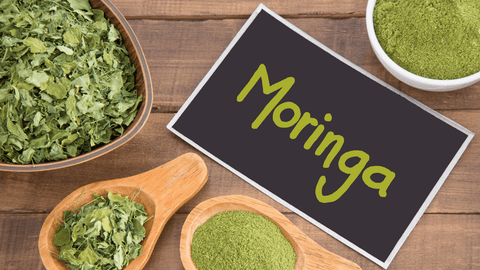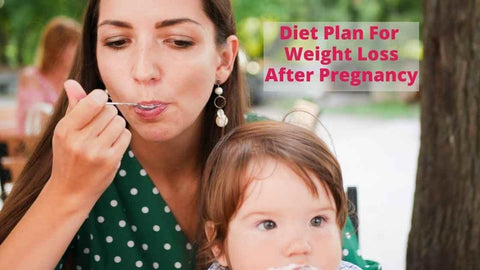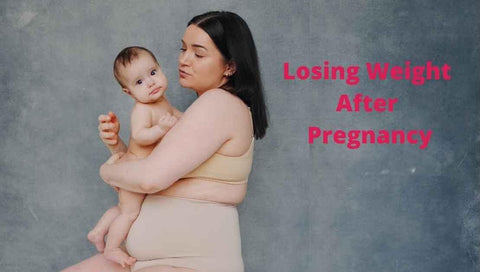COVID-19 Vaccine: Effects on Pregnancy and Breastfeeding
Pregnancy is a time of change in a woman’s life. During these nine months, you become a new person - your feelings, your experiences, and your thoughts - everything changes. You do everything to make sure your baby is safe. You bear any difficulties during pregnancy with patience, just for your baby’s health.

With the current coronavirus pandemic, you may have a lot of questions. How does covid affect my pregnancy? Is it dangerous for my pregnancy? Is the covid vaccine safe? What about breastfeeding? Can you breastfeed your baby if you have covid? Is it safe to get vaccinated while breastfeeding? Do the vaccines or their immunity pass through the breastmilk? In this article, we will be looking at COVID-19, and vaccination during pregnancy and when breastfeeding.
Table of Contents
COVID-19 and Pregnancy COVID-19 Vaccine and PregnancyCOVID-19 and Pregnancy
Early in the year 2020, the COVID-19 virus started spreading across the world. It quickly became a global pandemic.
When you are pregnant, your body becomes weaker because of all the changes happening to your body. Thus, pregnant women are at higher risk of catching the virus because their bodies are weaker. You have no idea how COVID-19 could affect your health and that of your baby when you are pregnant.
So consider COVID-19 is extremely dangerous in pregnancy. You should take extra care of yourself during these nine months and after the birth of your baby.
Symptoms of COVID-19
With COVID-19 being a deadly virus, it is important to protect yourself from this virus. Follow the instructions given by your government.
The symptoms of COVID-19 include:
Common symptoms
Fever, cough, and tiredness are the most common and early signs of the COVID-19 virus.
Less common symptoms
Diarrhea, headache, rashes on the skin, loss of taste and smell, sore throat, and aches and pains are some less common symptoms. In some cases, the patient may only experience some of these symptoms collectively.
Serious symptoms
When a COVID-19 patient is in serious condition the symptoms get worse and more painful. Pain and pressure on the chest, shortness of breath, loss of movement, and speech are some symptoms that occur in severe cases.
If you experience any of these symptoms, quarantine yourself, and contact your healthcare provider as soon as possible. For serious symptoms, seek medical help immediately.
Is COVID-19 dangerous for my pregnancy?
During pregnancy, your body is weaker due to external and internal changes. So when you are pregnant your chances of getting COVID-19 are higher and the condition can get severe.

If you are experiencing the symptoms of COVID-19, even if they are mild, immediately tell your healthcare provider or your midwife.
In which trimester is the COVID-19 risk higher?
It is unlikely for pregnant women to get seriously ill with COVID-19 in their early pregnancy. You are more likely to get sick with COVID-19 during the third trimester of pregnancy.
You should be careful: maintain social distance and/or wear a mask, to reduce the chances of getting the virus. This is especially important in your 3rd trimester of pregnancy.
Generally, COVID-19 does not affect your baby’s growth and development during pregnancy. Furthermore, there is no evidence that COVID-19 causes miscarriage.
If you get sick with COVID-19, there might be a chance of preterm birth. Your health care provider might also tell you to give birth before your due date.
How to prevent COVID-19 infection during Pregnancy?
First of all, go see your healthcare provider or midwife for any suggestions. They will provide information to help you and your baby avoid infection.
Following are some precautions that you can follow to prevent COVID-19 during your pregnancy.
- Stay at home more often; only go outside when it is necessary.
- Wash your hands frequently.
- Use hand sanitizer when you touch anything that may have been touched by others and especially when going from one place to the next.
- Avoid people with symptoms of COVID-19.
- Maintain social distance and wear a mask before going outside.
You have to be more conscious in your late pregnancy.
Keep Your Regular Checkups
During pregnancy, you have regular appointments with your doctor. You should not miss any of your appointments. Hospitals and private clinics are taking steps to protect you from this virus.
Your healthcare provider might ask you to follow these guidelines for your appointments:
Wear a mask whenever you come to the hospital for your appointments. It is necessary for protection from the virus.Sometimes your appointments can be rescheduled or canceled because of the rising number of COVID-19 cases.
Your health care provider or midwife may make some online appointments. This may happen if the pandemic condition does not allow you to go for a physical appointment.
What to do if you’re pregnant and have COVID-19
If you have any symptoms of COVID-19, like fever, cough, loss of taste or smell, tiredness, or headache, follow these steps:
Tell your midwife or healthcare provider that you have symptoms of COVID-19. They will tell you what to do, especially in serious circumstances, to protect both you and your baby from the virus.
Isolate yourself. Stay at home and avoid contact with others.
Go for a test to confirm if you have COVID-19 or not. Those who are living with you should also get tested.
It is in our hands to stop this virus from spreading. And we should act as responsible citizens in every possible way.
COVID-19 Vaccine and Pregnancy
During pregnancy, it is up to you to decide whether you want the vaccination or not. You can, and should, discuss your options with your healthcare provider or midwife. They will give you the best advice for you and your baby’s health. Sometimes it is important for the healthy development of your baby.
You also lower the risk of getting the virus after receiving the COVID-19 vaccination.
Current evidence shows that there is no risk to you or your baby if you get vaccinated during your pregnancy. But scientists are still researching to learn more about its side effects.
Common Side Effects of the COVID-19 Vaccine
The World Health Organization (WHO) identifies the following as some of the most common side effects that you might experience after getting vaccinated for COVID-19.
- Nausea and diarrhea.
- Fever and chills.
- Headache and fatigue.
- Body aches and pain at the point of injection.
What happens if I don’t get the COVID-19 vaccination?
If you don’t get the vaccination, you are at a higher risk of getting ill. If you do get sick, you also increase the chances of complications during and after pregnancy and during labor.
Women who contract the COVID-19 virus during pregnancy are at higher risk of preterm birth, cesarean delivery, and hypertensive disorder of pregnancy. Therefore, it is recommended that you get vaccinated.

What happens after vaccination?
You might be wondering if there are any different side effects when a pregnant woman gets the coronavirus vaccine. And what effects it has on your body. So far, the side effects have been no different to a non-pregnant person.
In some cases, the person might have few side effects from the vaccine that include fever, weakness, or fatigue. There’s no need to worry about any of these side effects because it is a normal reaction of your body to the vaccine. However, if you get a fever after receiving the vaccine, take acetaminophen (Tylenol®) because fever —for any reason— has been associated with adverse pregnancy outcomes.
Although rare, some people have had allergic reactions. If you are prone to allergic reactions, discuss your situation with your healthcare provider, and seek medical assistance immediately if this happens.
Once you get the vaccine, your body develops immunity against the virus. It starts to prepare antibodies to protect you. There is no evidence that the mRNA vaccine (recommended for pregnant women) can get into breast milk or to the fetus through the placenta.
Breastfeeding and COVID-19
There is evidence that breastfeeding cannot pass COVID-19 to your baby, so if you do have the virus, you can breastfeed your baby without any fear of passing the virus to your baby.
Take precautionary measures to keep the virus from spreading to your baby:
Always wear a cloth face mask when you are near your baby.
Wash your hands before touching your baby.
If you are pumping breast milk, wash your hands before you touch the pump or bottle.
COVID-19 Vaccination and Breastfeeding
If you are breastfeeding your baby, you might be wondering if getting a coronavirus vaccination is safe for your baby or not. You can get vaccinated for COVID-19 without any fear because it has no side effects for lactating women and their breastfeeding babies.

Reports have shown that moms who are breastfeeding and have received COVID-19 mRNA vaccines have antibodies in their breast milk, which could help protect their babies. More data are needed to determine what protection these antibodies may provide to the baby.
As mentioned earlier, side effects for you are the same as for any other person. However if you have recently given birth, your body may still be in it’s weakened state (though strengthening each and every day). So there's the potential that you may feel the side effects more.
Postpartum care in a COVID World
Postpartum care of your baby is as important as care during and after delivery and in the hospital. Postpartum can be a very tough time for any woman. And during a global pandemic, you might be more stressed.
If you are experiencing loss of appetite, extreme fatigue, severe mood swings, and lack of joy after your childbirth you may have postpartum depression. If the symptoms of postpartum depression do not fade away, talk to your doctor.
Try to relax and take postpartum classes, if possible. Your self-care is very important. You need to be at your best to take care of your baby. Talk to your family and friends for support and follow all precautions to reduce the risk of getting the COVID-19 virus.
Final Thoughts
Current information and guidelines from the World Health Organization (WHO) available, indicate that the vaccines are safe whether you are pregnant or breastfeeding. And in the latter case, may even benefit your baby. However, the research is ongoing, and evidence is limited. Speak with your healthcare provider or midwife who will advise you based on your particular circumstances.



